This is a time when anyone and everyone could be seen trekking across the country, with instruments carefully stored in the back of vans as they move from city to city, sharing music in front of live crowds. Unfortunately, it’s all come to a halt thanks to COVID-19, the new strain of the coronavirus that’s swept across the world since December of 2019.
I was fortunate though, catching one Gregory Pepper as he reached the tail end of his tour, with just a few dates left. He’s actually known as ‘Gregory Pepper And His Problem,’ although I’m not quite sure if there is in fact, any. Pepper has amassed a number of releases under the moniker and while they may all share the artist’s name, the recordings somewhat vary, sometimes in style but remaining unequivocally Pepper(ed). His latest release, I Know Now Why You Cry (Fake Four, Inc.), remarkably differs from his previous albums.
But it’s some of his collaborations that have drawn me in closer into the world of Gregory Pepper. There’s his work with Factor Chandelier as Common Grackle, as well jumping on Factor tracks (“Noise Band”), Ceschi (“My Bad”), but no other song that he was featured on had my attention more than what he worked on with Sixo (“John Connor.”)
We talk about the remaining dates on the tour, four to be exact and the next a last-minute addition on a reservation, which would be about 5 hours from this one. The life of a touring musician isn’t an entirely glamourous life as he recounts the scattershot performances around the country. One, in particular, was a 9-hour jaunt from Florida to the great state of Texas, with no performance stops in between. But this is something the Canadian Pepper is familiar with telling me, “Touring Central Canada is kinda like that, too. Everybody pretty much lives in Ontario, British Columbia, or Quebec. Like there’s just little pockets of people.” Pepper ad I talked at length regarding his new album, challenging listeners and himself, along with a myriad of influences that helped contribute to the birth of his latest release.
Your album is…. different. I mean not just from what a lot of other musicians are doing, but different from your last album as well. Um, it’s pretty expansive. I guess I should just start off by saying, I enjoyed it.
Thank you. (*laughs*)
It was, I mean it was different in that way, where you just keep on finding different things and hearing different things. I mean, I guess I’ll go through some of the songs here
Sure. I set out thinking that I was going to make my version of Beach Boys “Smile” because I had, I had called a lot of material to work on, I had about 50 songs going in, and I wanted to edit down to the point where there was really no fat left on the bone. Really just sort of a meaty barrage on the parts of baroque instruments. And then in the process of doing so, it kind of ended up being a bit more, a little more punkish and a little folkier than I had originally thought it was- it wasn’t as sunshiney as I expected.
Ok. But your baroque instrumentation, it all worked. It all really worked well when it came together. I mean, it’s a pretty dense album.
Sonically.
Sonically, it’s a pretty dense album.
My sympathies lie with the sound engineer that had to mix the thing because I usually self-produce my records, and this one I did in a proper studio with a guy named Dave Partridge, from Oakville, ON. He really rolled up his sleeves and really got, I think what is my most sort of complete sounding recording that I’ve ever done.

Why the change from one album to the next?
Well, you know I get bored very easily (*laughs.*) I’ve never really wanted to repeat myself in the past. So I kinda like to just hop from genre to genre and do almost like each album is a little study in a certain aesthetic. So the previous one I did was a noisy lo-fi thing, and I did a power-pop record before that. And kind of almost like a garage ska record before that. It’s more just to keep myself interested. Much to the frustration of listeners, I’m sure, the general public has an expectation going in, and when you sort of pull a 180 and do something that’s not expected, it can be a little abrasive, I imagine, but yea I’d never really done an ornate but anthemic album like this before and I was lucky enough to receive some government funding in Canada for the recording on it, so I was able to hire a lot of my friends to play on it, hire the brave engineer and sound engineers to work on it with me.
So you kind of got to cover yourself there…. it’s always been official.
Totally.
Ok, so you’re originally from Canada?
Yes.
Growing up musically, give me a little background.
Uh, my parents weren’t terribly music people, though I did discover my mother’s record collection around 5 or 6, and it was you know, Cat Stevens, Bob Dylan, The Animals, and when I heard The Beatles, I was transported to another place. I didn’t know music could be that good. And that to me is still, the pinnacle of songwriting and production. Like I’m just still trying to just bottle that and put it in a jar.
I just watched, not too long ago, that movie Yesterday.
Is that the one where the guy gets bumped on the head? My mom told me about that.
In that movie the Beatles don’t exist, actually, there’s a lot that doesn’t exist and so he’s trying to remember all these Beatles songs, and he becomes a superstar obviously because they’re Beatles songs. He tries to stick to the original, but you know, he has to interpret it the way he interprets it.
That’s a fun sort of sci-fi idea for a movie
It’s a funny movie, I mean, it has Ed Sheeran In it.
Yea my mother was saying he made a brief cameo in it
It’s pretty hilarious in certain scenes. But we digress.
Yea, don’t get me started on The Beatles or else we’ll never get out of it…
And when did you start playing music?
I think it was around the time… I was born in 82, I think when Kurt Cobain died, and he was already sort of this pre-packaged martyr, I became aware of the grunge movement, and sort of the noisy anti-guitar heroes. And that was when I first kind of picked up the instrument. I think I had kind of a woodshed moment when I discovered Weezer, I think their record came out in 94, I would have been 12/13 by then. And I was just, my dad was a pretty didactic fellow, so he said he would pay for my guitar lessons, and he would rent a guitar, but I had to prove that I could get proficient with the instrument before he would invest in a tiny practice amp and so I just start learning all my scales and all my bar chords. I got good really quickly, actually, because when you’re a kid you got nothing else to do. Only child, pretty short leash. So I just practiced a lot, and then I remember seeing some friends of mine playing in a band at a sock-hop, in high school, and I saw the adulation of my peers, and the other girls in the room, and it lit this incredible fire inside of me.
Sock-hop?
(*laughs*) I was born in the ’50s. But it was literally that! You put a dollar in a jar, and for recess, you go to this thing in the auditorium, where kids hang around and drink juice.
So the album? There’s some songs on there, “Warrior Spirit”. The lyrical content had me entertained. It really did because it’s like a neurosis, of everything in it. And I’m like that! I worry about things. All the time.
Yea that’s kind of about like my wife, more than it is about me. Because she’s an artist, and she’s super focused to the point of causing herself stress and anxiety. But I believe that’s what makes her a great artist. It’s that, that overcautious nature, and over-concern over the project.
Did she do the cover art for the album?
No, that was a painting that my dad made. I don’t know if you know the background of the record?
No.
These songs were all written as a part of a year-long subscription service I did, where I would write and record a new song every week. And it was released behind a paywall, on a Patreon webpage. And little did I know when I started the project that my dad would end up passing away, and my wife got pregnant, and we’d have our first kid. So within that year, I wrote a lot of songs about, sort of, life and death and everything in between. That was a painting that my dad actually made. He had dementia. And as a part of a sort of therapy, he was encouraged to. He was a non-artist, encouraged to take up painting, to express you know, whatever ephemeral intangible things he was experiencing. He was nonverbal at that point. And so he, so there was this recurring theme in a lot of his paintings of these faces engulfing each other and often sort of a clownish
And he was a non-painter?
He was yeah, so there was a very naive kind of quality, he didn’t mix colors. They were just all acrylics, straight out of the tube, and he did dozens and dozens of them, and honestly, I couldn’t even look at them at the time, because I saw… I could see the suffering, in the work. That was one he gave to my wife as a present and it wasn’t until we started thinking about releasing the album that I thought it would be a fitting tribute to use one of his paintings for the cover.
That’s amazing.
Yeah, I do visual art as well, but my art is very very clean and meticulous, whereas he and his lack of training, kind of tapped into something, almost like a childlike naive visual quality that you really can’t, you can’t cheat, right? That was Picasso’s whole thing. Unlearning everything that he had been taught, and trying to paint like a child. So that link between adulthood and childhood and death, it all seemed to be encompassed in that painting that he did. So yeah…it was cool, it was neat to collaborate with him for the first time ever, even though it was posthumous.
Now, there are things that I hear that I didn’t hear previously, listening to it on my drive, like say “Art Collector/Bord Of The View,” when you’re singing about “Art Collector,” I’m not sure exactly how the lyrics go, but then there’s a beep…
Oh, there’s a horn.
“Bullshit detector!”…
YES, which is a cruel thing to put on a record because…
Because when you’re driving it’s like, ‘what is that?’ I started looking around as well. But it’s “Bullshit Detector,” and then there’s a beep that goes off, and I’m like, “What the hell is that? Is that my engine, something wrong here?”
It’s purposely done to play with people’s senses, kind of, it’s meant to be jarring.
Yes.
I know it’s a cruel thing to put in the mix.
It did sync up with the idea of the bullshit detector.
I also have a day job at a fine art, like a contemporary art gallery. In the town where I live in. So my views about the capital A, art world are…. murky. At best. I love art, but I’m also cynical about the way it’s commodified nowadays, and it’s not, the way it’s inaccessible to the average person.
I watching this show on television called “Gentefied” and there’s one character who’s a young artist and she kind of gets sucked in like that. Where she has this patron who wants her art everywhere but he’s pushing the fact that she’s Latina, she’s queer, she’s this, she’s that, but it’s like you said, it’s really unattainable for the average person. I mean, in the end, she’s just like fuck all this, I’m not selling out. But it’s really interesting that I’m seeing all this from that perspective, and hearing you say that as well.
So does that affect your music, your day job? Working at the art gallery?
No, not so much. I mean I’m generally cynical about almost everything, so I can usually… If I’m given enough time I can extract some venom out of almost every situation I’m in.
Gotcha.
Generally, I like talking about art with people, the interesting duality, (we’re interrupted by passers-by talking to Gregory: “I have to catch you guys inside ok? Thank you so much for coming, I appreciate you”) Those folks came from California to be here
Wow, that’s awesome.
Umm… What was I saying?
Art. Cynical.
Some of the most interesting conversations I have at that gallery are with other working artists, who could never afford any of the work in the gallery. A variable to look at the work in a way that is removed from the price tag. Sort of just, talk about, either the technique, aesthetic choices, whatever, colors, whereas the crowd that can actually afford the work, they see it as an investment, and like you were saying about the young woman whose identity is tied up in the value of the work because of, be it political or academic qualities, and so for me, you know, I’m a relatively obscure musician, I’m kind of floating at this very low beta level, beneath the radar. In that way it’s totally freeing for me because I feel like I can write and sing about just about anything because I’m not put on that pedestal, I’m not, held to that high standard of a band that is suddenly very successful and they have to make that sophomore record.
Right. Not yet.
Not yet! But I think that just speaks to what we were saying about the genre-hopping and the intent to always kind of create something different. There’s this great pressure in the music industry, to give the people what they want, and not confuse the audience. Whereas I, you know, I have the freedom, because of my relative obscurity to be as strange and confusing, cerebric and cynical, and I can put my foot in my mouth all I wish.
And that’s the thing because people can appreciate that. People don’t get that very often.
I hope so.
I don’t find that often.
I mean there’s just so much music available now that it’s become completely overwhelming to even keep up with everything that’s out there.
It is. I mean even some artists have even said to me things like, “Well, my albums out there, you didn’t see it?”
Yeah, like in the deluge of Spotify right?
Did you send it to me? Nooo. You didn’t.
Even if you do send it, it’s like, it’s an interesting dichotomy that the digital age presents us with, right?
All at once, you have you know, just with that little phone in your hand, access to a million songs, but how do you sift through and decide what to listen to?
It’s difficult. I mean from where I sit usually, because I’m bombarded by so much. I don’t want to say that most of the stuff I get is garbage. But… a lot of it’s pretty bad. A lot of people will think they can do it, but you know, they won’t want to do the leg work either. And that’s kind of disappointing when I find a band that’s like omg they’re so good, but yea they just wanna hang out.
But that’s what tour is about right? It’s validating the product. I’m willing to put my time and my effort on the line and be away from my kid and my job and my family, to try to provoke some attention to this thing that I care deeply about.
So let me ask you about a couple of songs.
Sure
“Bigger than Jesus.”
Well, this comes back to The Beatles again right?
That’s what I thought. I actually did think of The Beatles, you know like when, when I heard that. Ok so that’s just in relation to…
So John (Lennon) was lamenting the fact that they were bigger than Jesus when they were publicly lambasted…. he wasn’t bragging, he was saying, more people are familiar with us that they are with the word of God. I was saying on one hand, cheekily, there are people, indie rock fans, for whom I am, I, Gregory Pepper, am a bigger influence than Jesus. Playing on the old John Lennon trope, but more so, that was written towards the end of the song cycle, after my daughter had been born, and I was thinking a lot more about salvation and what it means to have a child, and to essentially achieve a sense of, well, eternal life, right? Through passing, it passes down to your progeny, and the idea of eternal life, and this piece of wax, that’s gonna outlive me. Like most of my songs, it’s a strange convergence of sincerity and completely sarcastic sort of mischievousness, because I know there are people who are, rightfully so, going to squint their eyes at the notion of some 35yr old Canadian claiming he’s bigger than Jesus. It’s downright absurd, but then there’s, you know, this grain of personal sort of truth beneath the surface there. But I was thinking about John and I was thinking Beatles about that sort of ephemeral, eternal quality of life. There’s a lot of actual religious imagery, on the record, there’s a bit of reference to…
“I’m Dying”
…The Book of Genesis, and, sure, “I’m Dying”
Yea. because it was a crazy year for me, and I kind of went back. I was raised Catholic,
Which ones…?
The first song is called “Good Call.” And that’s sort of about, well, there was light, and we saw that it was good. I mention that it was good, and darkness upon the face of the deep, this is about the beginning of life, and it’s also tied up in death.
When “I’m Dying,” that’s creepy…. I wondered, “How he’s playing with vocal effects and the highs and the lows?”
When “I’m Dying” opened, I thought it was creepy…. I wondered, “How he’s playing with vocal effects and the highs and the lows?”
Well and in that case too, I’m, I started writing it about my MacBook Pro, which I was using to record, which was literally dying. Of course, I was venting about my dad who was in the hospital, dying, but, talking about this sort of meaningless physical object was a way to address something that was deeper and a lot closer to the bone.
So was this album therapeutic for you?
Yes. Well, and it was written over this year-long period. All of the original songs, the demos if you want to call them that, and I not only released the songs but I would write short essays about what music I was listening to at the time. If you’re not listening to music you can’t make music, there has to be some constant stimulation. I’d talk about what I was reading and what was going on in my life personally. It was basically like a live diary that I was publishing and then, I even got some realtime biofeedback from subscribers about what songs they like the best, and which ones they wanted to hear on the record. So there was even like a democratic (way) in choosing those songs. Some of them I combined, and it’s by far the most personal, autobiographical record right down to that cover art that we discussed earlier.
And I thought “Father’s Day” was really well done, all combined, the whole medley, it was amazing.
I’ve heard it attempted in pop music before but I’ve never really heard it done to that level of thoroughness, where every song is happening simultaneously, without it all sounding like a pile of garbage.
Telling someone “Listen to this, it’s all the songs combined,” which was followed by “Wow, so you’re telling me he talented.” I responded with, “Well yeah he is.”
Well and that’s a warrior spirit move because no one would get that on first listen. Or even second or third, it’s something that, it’s going to take repeated listens, and some contemplation, to understand what’s really going on at the end of that track there with everything all sort of being sewn into a kaleidoscope of sound. But you know, I spend a lot of time with music, and I think about it a lot, and I hope that there are some who are out there willing to return the favor in kind.
I know. We can end this on.. Where do you go from here?
Back to Canada! (*laughs*)
Aside from Canada- musically?
I’m not sure. I honestly have my doubts about the full album format at this point. We’re living, we’ve very much gone back to the 1950’s single culture. The full form album that we grew up listening to, I wonder if there’s the patience required to digest it, I wonder if it’s worth my time, which is a precious commodity, I mean, I want, I’m gonna make music, no matter, what, regardless if anyone hears it or not, professionally what I’m going to do after this, I can’t say, I’m not sure.
I’ve never recorded a “band” record, with everyone playing in one room, not as Gregory Pepper. I mean, maybe that’s a way to tap into something that’s both old and new, at the same time, rather than relying on computers to quantize a sloppy drum fill, autotune a vocal, maybe return to some kind of basics in that nature, or just, I mean, I do visual art, too, and I find that once I get burned on music for a while, I’ll focus on drawing and illustration, and kind of flex a different muscle. let the music kind of just simmer for a bit until I feel I’m inspired to pick up the pen again.


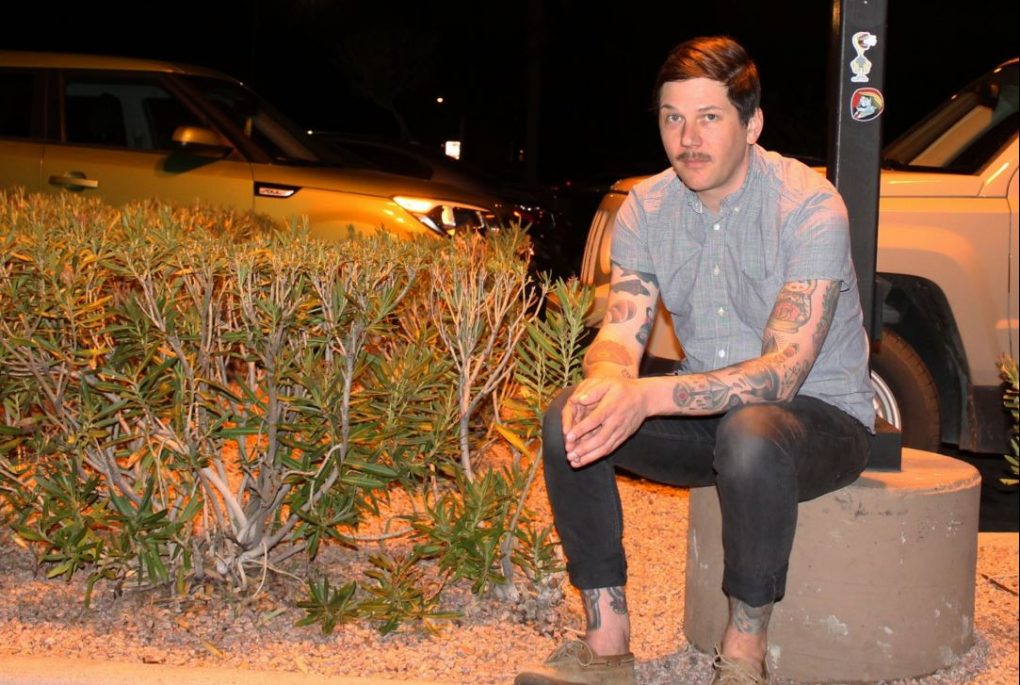
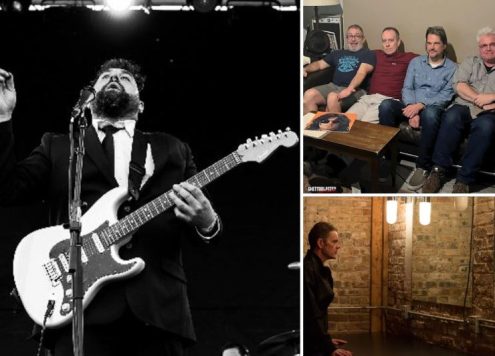

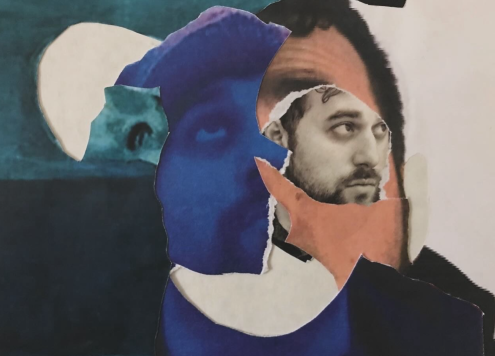

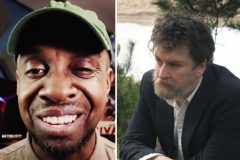
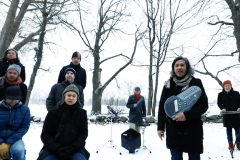
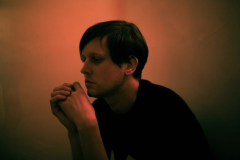
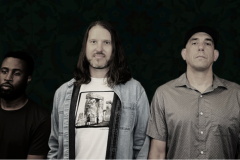

Social Media